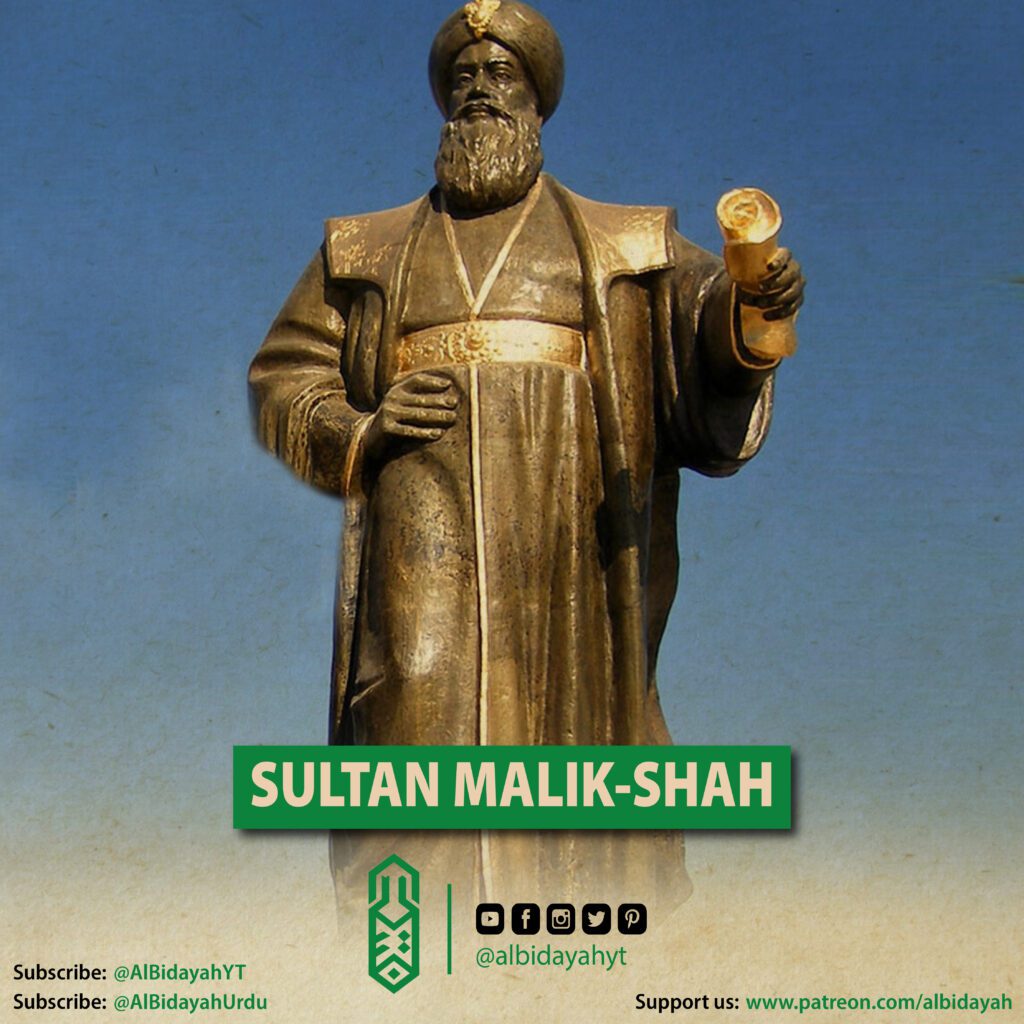On November 9, 1862 AD/CE, the Seljuq Sultan, Malik-Shah I died while he was hunting. He was most likely poisoned by the Abbasid Caliph or the supporters of Nizam al-Mulk. Under the orders of Terken Khatun, Malik-Shah’s body was taken back to Isfahan, where it was buried in a madrasa.
SUnder his leadership, the Seljuk Empire reached its zenith, encompassing vast territories stretching from Anatolia to Central Asia. However, his untimely demise marked the beginning of a significant decline in the unity and power of the Seljuk dynasty.

The Rise of Malik-Shah I
Malik-Shah ascended the throne after the death of his father, Alp Arslan, inheriting an empire that was already a formidable force in the Islamic world. With the guidance of his brilliant vizier, Nizam al-Mulk, Malik-Shah expanded the empire’s borders, strengthened its administrative framework, and fostered a golden age of culture, science, and art. During his reign, institutions like madrasas flourished, and the Islamic calendar was refined with the introduction of the Jalali calendar.
See Also: Sultan Malik-Shah I Family Tree
Circumstances Surrounding His Death
In November 1092 CE (485 AH), Malik-Shah died under mysterious circumstances at the young age of 37. His death came shortly after the assassination of his trusted vizier, Nizam al-Mulk, a blow that destabilized the empire. While some sources attribute Malik-Shah’s death to natural causes, others speculate foul play, possibly involving court intrigues or even poisoning orchestrated by political rivals.
See Also: Sultan Alp Arslan, a Short Biography
Aftermath of His Demise
The death of Malik-Shah plunged the Seljuk Empire into chaos. His sons and other family members vied for power, leading to internal conflicts that fractured the once-unified empire. This division ultimately paved the way for the empire’s fragmentation into smaller Sultanates, such as the Sultanate of Rum and the Seljuks of Khurasan. The disunity weakened the empire, making it vulnerable to external threats, including the Crusades.
Legacy of Malik-Shah I
Despite the turmoil following his death, Malik-Shah is remembered as one of the greatest rulers of the Seljuk dynasty. His reign symbolized the height of Seljuk power and influence, a period marked by prosperity, intellectual achievements, and architectural marvels. His legacy continues to be celebrated in Islamic history as a golden era of governance and culture.
The demise of Sultan Malik-Shah was not just the end of a ruler but the beginning of a critical transition in the Seljuk Empire. His passing serves as a poignant reminder of how the death of a strong leader can profoundly impact the course of history.


